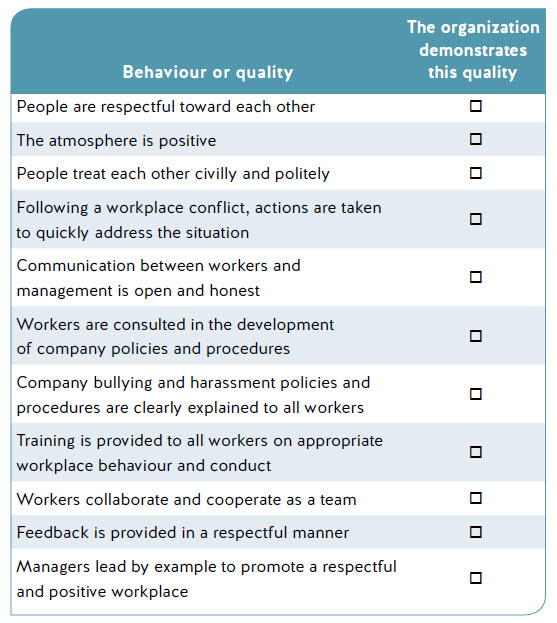Employee: “What do you mean I can’t tell him to fuck off?”
Boss: “No, you can’t. Our new Respectful Workplace Policy requires that people treat each other civilly and politely. Telling him to f-off won’t cut it anymore.”
Established construction companies are in transition. Historically, the construction industry, especially worksite tradespeople and workers, more-or-less accepted coarse language, harassment, even bullying… as part of the work environment. Male dominated…
Early in my working life, I spent a handful of years managing engineering construction projects. “Respectful workplace” was not a commonly used (ever used?) term.
Today, some of my clients are construction companies. I know, first-had, that they are very familiar with the term “respectful workplace”. I’m helping those companies implement respectful workplaces.
Respectful workplace policies are being mandated by governments, everywhere. In part, the drive for respectful workplaces stems from the publicly visible, and recognized, damage caused by workplace bullying and harassment.
I empathize with the construction companies mandated to implement respectful, conflict competent, workplaces. In many ways, they are breaking tradition. Changing habits is tough.
What is a Respectful Workplace?
Where I live, its WorkSafeBC who enforces the respectful workplace mandate. Respectful workplace is now seen as a vital component of occupational health and safety.
WorkSafeBC provides this respectful workplace checklist, as a guide:

Implementing a respectful workplace
Respectful workplace and conflict management interweave. For effective respectful workplace implementation, I include:
- formalizing respectful workplace policies and procedures, and having everyone signing off on those policies/procedures
- implementing appropriate conflict resolution structures & supports
- integrating respectful workplace into a ‘big picture’ conflict management system
- skills training and professional development; e.g., ‘hot buttons’ management, constructive communications…
- regular conversations on topics related to respectful workplace, interpersonal communications, conflict resolution, collaboration… Change happens through conversations
- individual coaching, mentoring; leaders must model the way, forward
Managing the transition
Transitioning individuals and company to a new culture, i.e., respectful workplace, is a journey. It doesn’t happen overnight. And, the desired cultural destination will likely shift, and remain elusive.
Clarity around purpose (i.e., why a respectful workplace matters), a roadmap to find your way, and involving those affected, in the process, are keys to success.
Maybe you are wrestling with a workplace culture shift, too?

I wonder if the age factor is important in implementing a respectful workplace. What can/should we do with a non-respectful fossilized behavior?
Definitely, Naji. Age can be a challenge in implementing a respectful workplace, and should be factored into the equation.
In addition, the age question highlights a separate (though interrelated) challenge – that of the multi-generational workplace… and that challenge is only going to magnify as the general population ages, all the while wanting to participate, even in limited ways, in the workplace. Obviously, in a 5-generation workplace, perspectives on ‘respect’ may differ, and solutions may have to become more nuanced; i.e., complex!
Thanks for dropping by, Naji. 🙂
Thank you for your attention and detailed response, Ben. 🙂
Respect is fundamental to any workplace, and this article highlights its importance effectively. Building a culture of trust and inclusivity, especially in construction, fosters collaboration. Great advice for leaders!